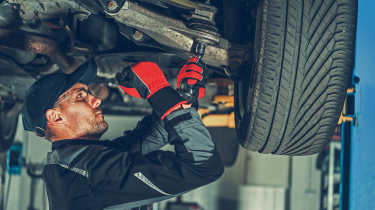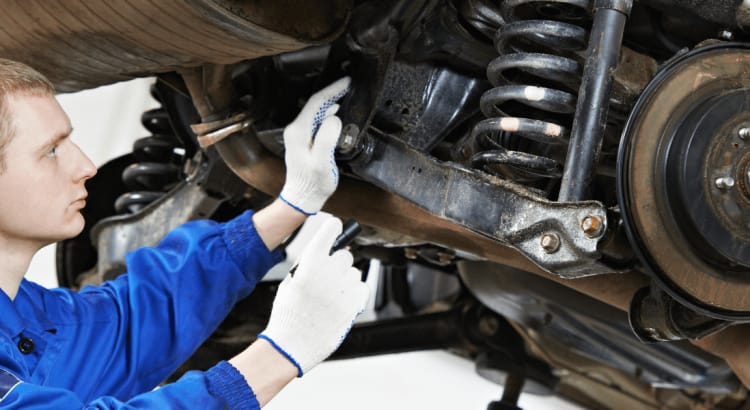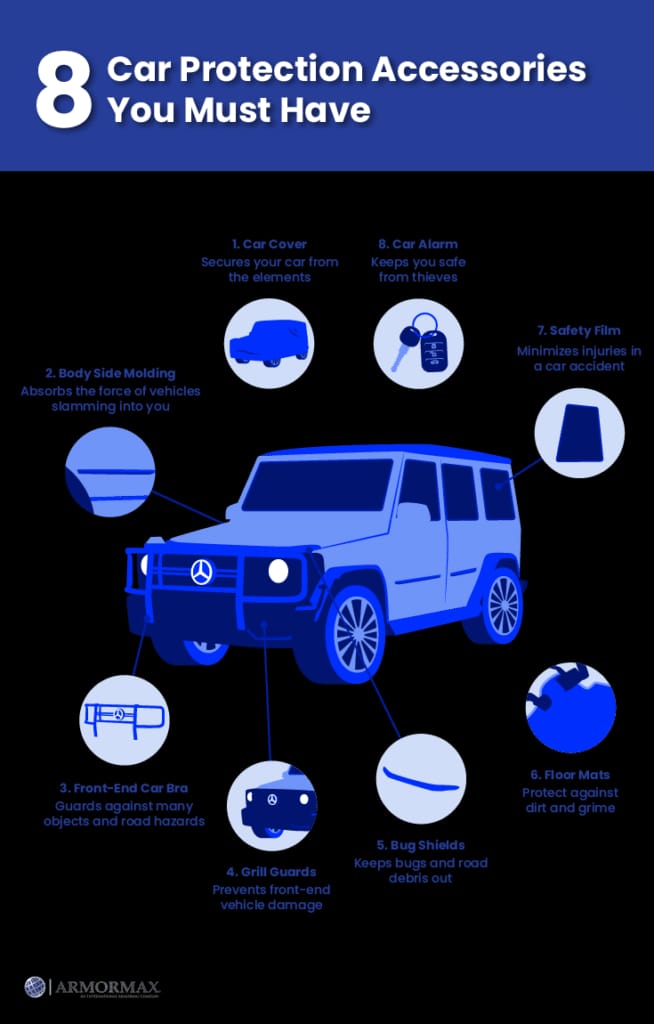Suspension bushes are designed to take a beating, absorbing vibrations and improving the refinement of your car. It’s fairly typical for them to need replacing in a high mileage car. Creaking bushes aren’t likely to be a serious problem immediately, but it’s a sign that they probably need replacing. Ignoring it can lead to complete failure of the bushing – a significant problem that can make your car unsafe to drive.
Advertisement – Article continues below
A creaking noise can also be caused by worn ball joints. This is the joint between the suspension and the wheel, allowing the latter to pivot. If this begins to wear out, or if the seal fails and lets dirt into the joint, then it can create a creaking noise when turning.2. Clunking or thudding noises
A clunking or thudding noise is usually more serious than a creak, but it can also be caused by a worn suspension bush or ball joint. It tends to indicate that there’s slack in the suspension that’s allowing two components to bang into each other. If a bush or ball joint has worn out, this can create additional play in the suspension, allowing two components to ‘clunk’ over bumps.
A worn out suspension strut or shock absorber can create a clunking or thudding noise, too. These components are used to support the weight of the car over bumps, but if they’re worn out, the car can ‘bottom out’ on its suspension, creating a clunk or a thud. A similar noise may occur if the strut or shock mounts have worn out.3. Clanking noises
A clanking noise is usually indicative of metal striking metal. If the noise occurs over bumps, it’s possible that a suspension bush or ball joint has failed entirely and is allowing two metal components to come into contact. This could be more serious than a creak or a knock and should be investigated immediately.4. Knocking noises
If you notice the noise is dependent on speed – i.e., it gets faster as the car speeds up – then there’s probably an issue with a rotating component, such as one of the driveshafts. You might hear a knocking noise when you turn the steering wheel, with the speed of the knocking increasing or decreasing with the speed of the car. Alternatively, a wheel bearing could be on the way out. This will usually be closer to a grating or clicking noise, but you’ll also notice it speeding up with the car. What to do about suspension noises
If you notice an unusual noise from your suspension, it’s always worth having it investigated by a professional. Your suspension is vital to the safety of your car, so it’s not worth taking any risks. What starts out as a fairly minor issue can lead to a far more serious one if ignored.


Suspension issues can sometimes be tricky to diagnose, so it’s important to provide the mechanic with as much information as possible, including the type and location of the noise. They will be able to give the car a full inspection from underneath, potentially spotting an issue you wouldn’t have been able to see at home.
If you notice a change in the way your car steers, brakes or rides, you should stop driving the car until you can have the issue investigated. It also goes without saying that if you spot any visual damage to your car’s suspension – including cracked components, misaligned wheels or an excess of leaking fluid – you should not attempt to drive the car.
Frequently Asked Questions
<p>If you notice your suspension is creaking, you should have it investigated by a professional. While it may not pose an immediate problem, it could lead to a more serious issue if left to get worse.</p>
<p>Knocking suspension is usually caused by a worn suspension bush or a worn ball joint. It can also be caused by a suspension strut or shock absorber that needs replacing.</p>
<p>As a suspension knocking noise has several causes, with varying degrees of severity, we don’t recommend driving. In most cases, the issue won’t immediately be serious, but there’s no way to be sure without having the noise investigated by a professional.</p>More on car problems



